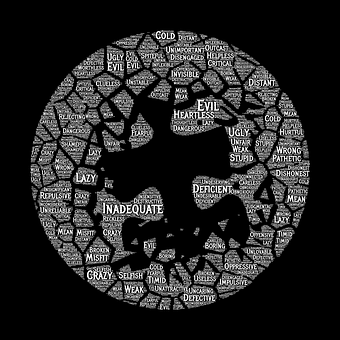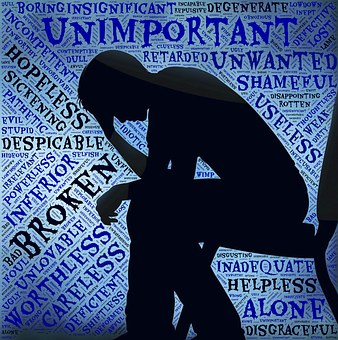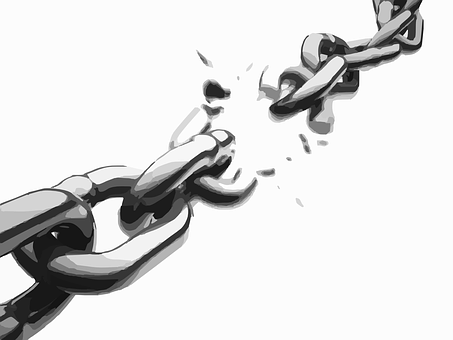Romans 7:21-23(Phillips): That is, I don’t accomplish the good I set out to do, and the evil I don’t really want to do I find I am always doing. Yet if I do things that I don’t really want to do then it is not, I repeat, “I” who do them, but the sin which has made its home within me.
So what exactly is the flesh? Last blog I talked about its covert nature,  but now I want to go into what it actually is and in part how it functions. Sometimes when we think of the term we think of sin, but if we look at the way Paul describes his struggle it is clear that the flesh is not simply an act or an idea. More accurately, it is the part of ourselves or the mechanism that produces or influences the sin in our lives.
but now I want to go into what it actually is and in part how it functions. Sometimes when we think of the term we think of sin, but if we look at the way Paul describes his struggle it is clear that the flesh is not simply an act or an idea. More accurately, it is the part of ourselves or the mechanism that produces or influences the sin in our lives.
Romans 8-11(MSG) “But the sin in me, finding in the commandment an opportunity to express itself, stimulated all my covetous desires.” Sin or the flesh is personified here. I would agree in personifying parts of ourselves in this way. But ultimately what he is labeling as sin or the flesh is an unhealthy part of us that has taken on a life of its own.
Richard Rohr, whom I mentioned in the first part of this series, looks at Paul’s distinction between Spirit and Flesh as more accurately an argument between part and whole. The flesh represents a part of us whereas the spirit represents our whole self. This makes sense to me when I think about Paul’s statement that it is no longer “I” that do it but the sin in me. To take this at face value would be to think that Paul was disavowing any responsibility for his actions and completely divorcing himself of the sin. I think rather it is similar to what Rohr is trying to say about parts and wholes. In that moment that I am doing something that I don’t want to do, it is not the whole me (“I”) but a part of me- my flesh or sin.
whereas the spirit represents our whole self. This makes sense to me when I think about Paul’s statement that it is no longer “I” that do it but the sin in me. To take this at face value would be to think that Paul was disavowing any responsibility for his actions and completely divorcing himself of the sin. I think rather it is similar to what Rohr is trying to say about parts and wholes. In that moment that I am doing something that I don’t want to do, it is not the whole me (“I”) but a part of me- my flesh or sin.
This distinction is actually consistent with what psychology has only recently begun to rally around- particularly in the area of trauma research and neuroscience. Gestalt therapy has made this concept a central theme in growth and healing. The word “gestalt” is German for whole- the implication is that we have various parts and we are working toward integration. The therapy has been described as the integration of polarities. I think this is an apt lens to look through given that Paul sets up the Flesh and Spirit as polarities. It is also useful in understanding the flesh as a living thing with an agenda, yet part of who we are.
In practice, one of the ways that we see these parts come to life is through the empty chair technique. Gestalt therapy often uses the empty chair to allow the opposing sides a full voice- it really captures the essence of Paul’s description as the flesh/sin being a fully autonomous agent. It is commonly done by setting up chairs that face each other, each chair represents a part of the self. The individual would then alternate sitting in each seat, giving voice to each part, having a conversation with the other. It may sound crazy but it is an incredibly effective intervention. Sometimes when an individual is struggling with a decision, each chair would represent the opposing parts. The “person” that wants the job talks to the “person” that doesn’t. As they own each part, revelations often emerge or compromises are reached between the two sides. But it is a really powerful experience to observe how fragmented we can be and even how unaware we are of the agendas of parts of ourselves.
How does the Flesh form?
I think it is likely that flesh is also what is commonly referred to as our sinful nature. But more accurately, it is the part of our brain that is cut off from relationship- relationship with self, relationship with God, and relationship with others. The redemption and healing that is talked about in the bible comes about through relationship, but when we separate ourselves as the result of shame, bad things happen.
The flesh, if we understand it in terms of the shadow side or disowned  parts of ourselves, is not a single part or aspect of ourselves. The flesh is a category of thoughts, feelings, and experiences that have been disowned due to shame or anxiety. Modern therapeutic modalities and neuroscience agree that when we experience high anxiety or cognitive dissonance (what we do or think is inconsistent with who we believe we are) we bury parts of ourselves. The problem with this strategy is that the parts of our self that we cut off begin to take on a life of their own.
parts of ourselves, is not a single part or aspect of ourselves. The flesh is a category of thoughts, feelings, and experiences that have been disowned due to shame or anxiety. Modern therapeutic modalities and neuroscience agree that when we experience high anxiety or cognitive dissonance (what we do or think is inconsistent with who we believe we are) we bury parts of ourselves. The problem with this strategy is that the parts of our self that we cut off begin to take on a life of their own.
Typically the parts of us that are disowned in childhood are much more difficult to re-own and process, but things we bury due to cognitive dissonance later in life are much more easily reintegrated and processed.
One example would be the child of a very angry and abusive parent who experiences all anger as anxiety provoking. The experiences were so frightening, so early on, that the child disowns all aspects of anger, aggression, and assertiveness. The problem is that anger is very much a part of who we are, so that anger takes on a life of its own and begin to operate without conscious awareness- it becomes what Paul would term the flesh. It can influence and act in a variety of ways but one of them is by becoming very passive-aggressive. The flesh uses that tactic to express its desires without the conscious knowledge of the individual.
Another example might be when a Christian experiences jealousy and attempts to disown it because it is too shameful or inconsistent with who they believe themselves to be (cognitive dissonance). So the individual notices that a couple has stopped coming to church over the summer in order to do more activities with the family. This individual begins to express anger at the couple’s lack of faithfulness to God, but underneath there is a jealousy and longing for the same freedom which is why it comes across as judgment and anger rather than concern or compassion. The individual’s failure to own their thoughts and feelings allows them to become flesh and take on a life of their own.
Why do we want to “own” the flesh? Because its power comes from its  covert nature and its autonomy. Paul makes clear that we really can’t kill the flesh, we will always be sinners, but Christ has provided us a way out. In the next installments we will look at specific kinds of “flesh” and then how we ultimately deal with it.
covert nature and its autonomy. Paul makes clear that we really can’t kill the flesh, we will always be sinners, but Christ has provided us a way out. In the next installments we will look at specific kinds of “flesh” and then how we ultimately deal with it.
Next Wednesday: Categories of the Flesh (Flesh Series Part 4)
 but now I want to go into what it actually is and in part how it functions. Sometimes when we think of the term we think of sin, but if we look at the way Paul describes his struggle it is clear that the flesh is not simply an act or an idea. More accurately, it is the part of ourselves or the mechanism that produces or influences the sin in our lives.
but now I want to go into what it actually is and in part how it functions. Sometimes when we think of the term we think of sin, but if we look at the way Paul describes his struggle it is clear that the flesh is not simply an act or an idea. More accurately, it is the part of ourselves or the mechanism that produces or influences the sin in our lives. whereas the spirit represents our whole self. This makes sense to me when I think about Paul’s statement that it is no longer “I” that do it but the sin in me. To take this at face value would be to think that Paul was disavowing any responsibility for his actions and completely divorcing himself of the sin. I think rather it is similar to what Rohr is trying to say about parts and wholes. In that moment that I am doing something that I don’t want to do, it is not the whole me (“I”) but a part of me- my flesh or sin.
whereas the spirit represents our whole self. This makes sense to me when I think about Paul’s statement that it is no longer “I” that do it but the sin in me. To take this at face value would be to think that Paul was disavowing any responsibility for his actions and completely divorcing himself of the sin. I think rather it is similar to what Rohr is trying to say about parts and wholes. In that moment that I am doing something that I don’t want to do, it is not the whole me (“I”) but a part of me- my flesh or sin. parts of ourselves, is not a single part or aspect of ourselves. The flesh is a category of thoughts, feelings, and experiences that have been disowned due to shame or anxiety. Modern therapeutic modalities and neuroscience agree that when we experience high anxiety or cognitive dissonance (what we do or think is inconsistent with who we believe we are) we bury parts of ourselves. The problem with this strategy is that the parts of our self that we cut off begin to take on a life of their own.
parts of ourselves, is not a single part or aspect of ourselves. The flesh is a category of thoughts, feelings, and experiences that have been disowned due to shame or anxiety. Modern therapeutic modalities and neuroscience agree that when we experience high anxiety or cognitive dissonance (what we do or think is inconsistent with who we believe we are) we bury parts of ourselves. The problem with this strategy is that the parts of our self that we cut off begin to take on a life of their own. covert nature and its autonomy. Paul makes clear that we really can’t kill the flesh, we will always be sinners, but Christ has provided us a way out. In the next installments we will look at specific kinds of “flesh” and then how we ultimately deal with it.
covert nature and its autonomy. Paul makes clear that we really can’t kill the flesh, we will always be sinners, but Christ has provided us a way out. In the next installments we will look at specific kinds of “flesh” and then how we ultimately deal with it.